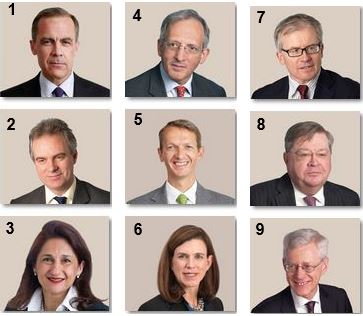In its first meeting of 2015, the Monetary Policy Committee of the Bank of England voted to leave interest rates unchanged at 0.5%, following a slow-down in GDP growth and a 12-year record-low inflation rate. The Bank Rate has been at 0.5% since March 2009.
The Bank of England also announced that it would reinvest £4.35 billion of proceeds from a bond that matured in January 2015 in its £375 billions’ worth of quantitative easing asset purchases.
UK’s central bank had previously said it would reinvest such proceeds until interest rates had risen well above their current record-low levels.
No interest rate rise likely this year
With inflation sliding further from the BoE’s target of 2% per year, the Eurozone entering a period of deflation, and oil prices tumbling, most analysts are betting on no interest rate rises in the UK this year.
Just before the Monetary Policy Committee met, the pound sterling fell to its lowest level against the US dollar in 18 months, as a result of a strong dollar, some negative headwinds emerging that may affect Britain’s economic prospects, and uncertainty regarding May’s general elections.
The consumer price index (inflation) dropped to 1% in November. British law requires that the Governor of the Bank of England, Mark Carney, must write a public letter of explanation to Chancellor George Osborne if inflation veers too far from the 2% target.
Monetary Policy Committee members. 1. Mark Carney (Governor). 2. Ben Broadbent. 3. Nemat Shafik. 4. Sir John Cunliffe. 5. Andy Haldane. 6. Kristin Forbes. 7. David Miles. 8. Ian McCafferty. 9. Martin Weale. (Source: Bank of England)
GDP growth revised down
In December, the British Chambers of Commerce (BCC) revised down UK GDP (gross domestic product) growth to 3% from 3.2% for 2014, and from 2.6% from 2.8% for 2015. The Office for National Statistics informed on December 23rd that the British economy grew by 2.6% between Q3 2013 and Q3 2014, and not 3% as had been previously estimated. Soon after the announcement the pound started to slide.
It will be interesting to see whether the two Monetary Policy Committee (MCP) hawks – Martin Weale and Ian McCafferty – voted to leave interest rates unchanged this time round. At every monthly MCP meeting since August 2014 they have voted to raise rates, while the other 7 members have chosen to keep them where they are. We will know how they voted in two weeks’ time.
Mr. McCafferty and Mr. Weale are worried that ultra-low rates could be fueling inflation. They also argue that when rates eventually do have to go up, unless measures are taken now, they will have to rise abruptly, which would be bad for the economy.
MPC member Professor David Miles said in December that the sharp fall in inflation does not mean there is a risk of deflation in the UK. He does not believe the Bank of England needs to take measures to stimulate the economy. During the global financial crisis, Prof. Miles pushed hard for BoE action.

